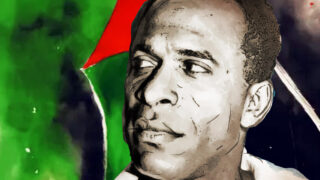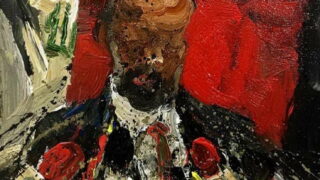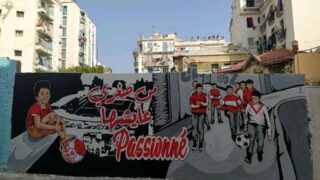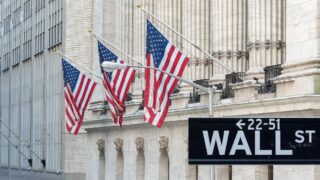Algeria is witnessing a decline corresponding with the developments of the health status of its “silent” president, who has been unable to preside over the Council of Ministers for several months. The cabinet meeting on Sept. 29 2013 aimed at putting an end to rumors about the deterioration of the health of President Abdulaziz Bouteflika. The media is preoccupied with the issue of the president’s health, while the country is no longer being [effectively] governed. Daily affairs are successively managed through an image of the prime minister, completely backed by the highly influential intelligence and security department. The latter has been ruled for 23 years by Gen. Mohamed Mediene, also known as Toufik, who has maintained his office and position [during Bouteflika’s absence].
Moreover, the performance of Prime Minister Abdelmalek Sellal during the last Arab League summit was not only unimpressive, but also noticeably ignored by some of his cabinet ministers. This confirms the inferior perspective the Algerian public has of the government and consecrates the reality that the regime has not yet chosen Bouteflika’s successor.
Yields offset many deficits
The abundance of oil revenue mitigates the severe weakness of the executive branch, which is unable to launch an appropriate economic and social policy. Moreover, the price of oil and gas — with returns accounting for 97% of the country's exports — registered a decline in the beginning of 2013, which gave way to a clientelism-based distribution, in light of the continuation of an exaggerated and ineffective public expenditure. In 2012, Algeria registered a trade surplus of $27.18 billion compared to $26.24 billion in 2011, representing a 3.6% increase. At that time, exports benefited from the good crude oil prices. Yet, the trade balance has been deteriorating since the beginning of 2013, due to lower oil prices, which dropped below the prices registered in the same period of last year. Furthermore, the Central Bank had announced that Algerian oil prices decreased by 5.70% during the first quarter of 2013, coupled with a 9% decrease in the volume of oil exports. These two phenomena led to a 14% decline in oil revenues — i.e., a decline of slightly more than $3 billion — in the first quarter of 2013, with revenues totaling $17.53 billion. This is compared to more than $20 billion for the first quarter of 2012.
This decline is not worrying as long as Forex-reserves — totaling nearly $190 billion — remain stable and at a high level for an economy the size of the Algerian economy. In all cases, the Central Bank of Algeria noted that “in light of a similar level of official reserves in foreign currency (except for gold reserves) at the end of December 2012, Algeria is ranked among the first developing countries in terms of Forex reserves to total GDP ratio.” This is one of the rare satisfactory elements for an administration that remarkably lacks efficiency, as evidenced by the shameful classifications of Algeria on all of the global economy comparison tables, not to mention the miserable growth rate.
Crazy consumer importation and corruption
On the other hand, this financial affluence — which is of high importance, especially since Algeria practically does not bear any foreign debt — does not allow the country to shake off its growing dependency on imports. Therefore, it is necessary to tackle the decrease in oil exports — in terms of both quantity and value — compared to the steady increase of imports, which are expected to reach an unprecedented level, i.e., as much as $60 billion by the end of this year. The yields resulting from the exploitation of natural fossil resources consecrated a real dependency on importation, which all bureaucratic measures taken for years have failed to control. The problem lies in the dominance of consumer goods on these massive imports, at the expense of production revenues with ever dwindling shares. Algeria is witnessing the demise of its industry, which resembles a consumer-driven market with narrow and very limited options and which is unable to exploit the enormous public expenses (of more than $500 billion) spent for about 10 years ago now as leverage for production and job creation. On a different note, the official authorities’ inability to reduce unemployment, especially youth unemployment, is equivalent to the decline in the level of public services, in particular those related to the health sector.
Algeria’s hospitals — teeming with filth — became the victim of a systematic shortage of medicines and turned into waiting rooms for death. When an Algerian does not belong to the privileged elite that are eligible to obtain social security benefits to receive treatment abroad, he better pray that he does not contract any disease. In this context, President Bouteflika being taken to a military hospital in Paris for treatment left negative reverberations among citizens. Subsequently, photos showing the terrible decay of the Algerian health services went viral online. Faced with the nightmare experienced by millions of Algerians, the government pledged to build other hospitals. These hospitals are bound to have the same fate as the current ones, given their poor management. It is well known that the public sector for the construction of hospitals is one of the areas most rampant with corruption. The final cost for the construction of the military hospital in Oran exceeded $900 million (compared to an estimated $160 million for this category of infrastructure). This hospital was constructed by Brown-Root-Condor, an Algerian-American company operating in both the military and oil fields and whose dissolution under suspicious circumstances sparked a scandal a few years ago. The constant and increasing costs of these kind of turnkey projects reached astronomical levels, in a country where failing to perform tasks at the highest levels of the state apparatus became widely common.
Thus, the Italian judiciary finally revealed that a corruption network associated with former Minister of Energy Chakib Khelil — who was subsequently sent to the United States as a precautionary measure — received a billion dollars in bribes in return for awarding a series of business contracts to the Algerian state oil company, Sonatrach. In light of the embarrassment caused by the Italian judiciary’s statement, the Algerian judicial authorities decided to officially take over this matter that has come to be referred to as Sonatrach case No. 1 and No. 2. The security agencies affiliated with the intelligence and security department informed the media that investigations have been opened, but the results have yet to be released. This is also the case for other previous investigations on huge financial embezzlements carried out by officials and senior officers, against the backdrop of the execution of the project for the construction of the highway connecting the eastern region to the western region by Chinese and Japanese companies.
On a different note, the Algerian political regime is founded on an illusory institutional basis, it completely lacks transparency, it has no accountability mechanism and does not determine the responsibilities of its various actors. Furthermore, the paralyzed country — registering negative economic results — has no say on the international scene, whether in relation to the issue of neighboring Mali or to the dramatic Syrian issue. Algerian diplomacy is absent, and its position is of insignificant importance. Algeria, once an active player on the international scene, has lost its influence and respect .
Conflict between the president and the departments?
The recent cabinet reshuffle is one of the signs of this Algerian political reality. This was significantly shadowed by the reorganization of the political police, i.e., the intelligence and security department. The tightly closed political arena and strict supervision over the press — with media outlets only enjoying independence in the form — allow the government to manipulate public opinion through rumors and designating scapegoats. This is aimed at shifting the attention of citizens and covering up for those who are taking hold of the real power.
It is within this very context that we find the persistent focus on the theory of conflict between the leaders of the security services on the one hand, and the president on the other. According to the simplistic narrative, the ill president and his family are responsible for the tense situation plaguing Algeria. However, few are those who give credit to this alleged conflict, as it is clear that the real power and its continuity still lie at the top of the security agencies, which have monopolized control of the country since Jan. 11, 1992.
These security services have shown a very high level of efficiency in stifling freedoms and disseminating social ills. Despite their unlimited potential, however, they clearly suffer from difficulty in protecting the country, as shown by the terrorist operations in southwestern Algeria (although this is an area of major security density), during the attack on the oil field in Tigantourine in the far southeast.
Whether these events emanate from an internal manipulation or from a malign behavior, they have managed to prove, despite everything, that inefficiency is not confined to the civilians in charge of managing the country.
Nevertheless, lambasting the intelligence department, the security apparatus and security leaders is a taboo in Algeria — a red line that no Algerian media outlet can cross without being punished. While the people circulate such criticism, the president certainly has a margin for maneuver, especially in terms of the large financial contracts and commissions, but he only practices those powers that the security services leaders granted him.
The vision whereby the security aspect outweighs the political one is quite right. In any case, it is clear that the succession in the leadership of the intelligence and security services is much more important than the succession at the head of the state, for the mandate of the president expires in 2014. The debate about the possible extension of the mandate of the president for an additional two years is not yet a foregone conclusion.
The mandate of the commander of intelligence and the security apparatus is only limited by “biology” and by a balance of power that has been working in his favor for more than two decades now. But regardless of the choice of the leaders of the security services and the reorganization of the apparatuses (and their redirection), it is clear that we cannot expect any development as long as Algeria remains a police state that stifles freedoms, lacks efficiency and is completely corrupt .
The decay of the system poses a direct threat to the survival of the current state. The publicly raised question revolves around the ability of the system to absorb another shock of the size of the Tigantourine hostage crisis, especially considering that it has really succeeded in emptying the arena of any active voice.
Since the death of Abdelhamid Mehri, former secretary general of the National Liberation Front, in January 2012, it was no longer possible to hear any known and credible voice. Moreover, the average age of the current Algerian leaders — starting with President Bouteflika and Gen. Tawfiq Moudin, who are about 75 years old, and Deputy Minister of Defense and Armed Forces Commander Gen. Ahmed Gaid Salah (more than 80 years old) — makes it impossible to continue to differentiate between the renewal of generations and the structural transformation of the ruling political institution in the country. Let us hope for urgent democratic changes before the Algerian state is reduced to ruins.
Translated by Al-Monitor




